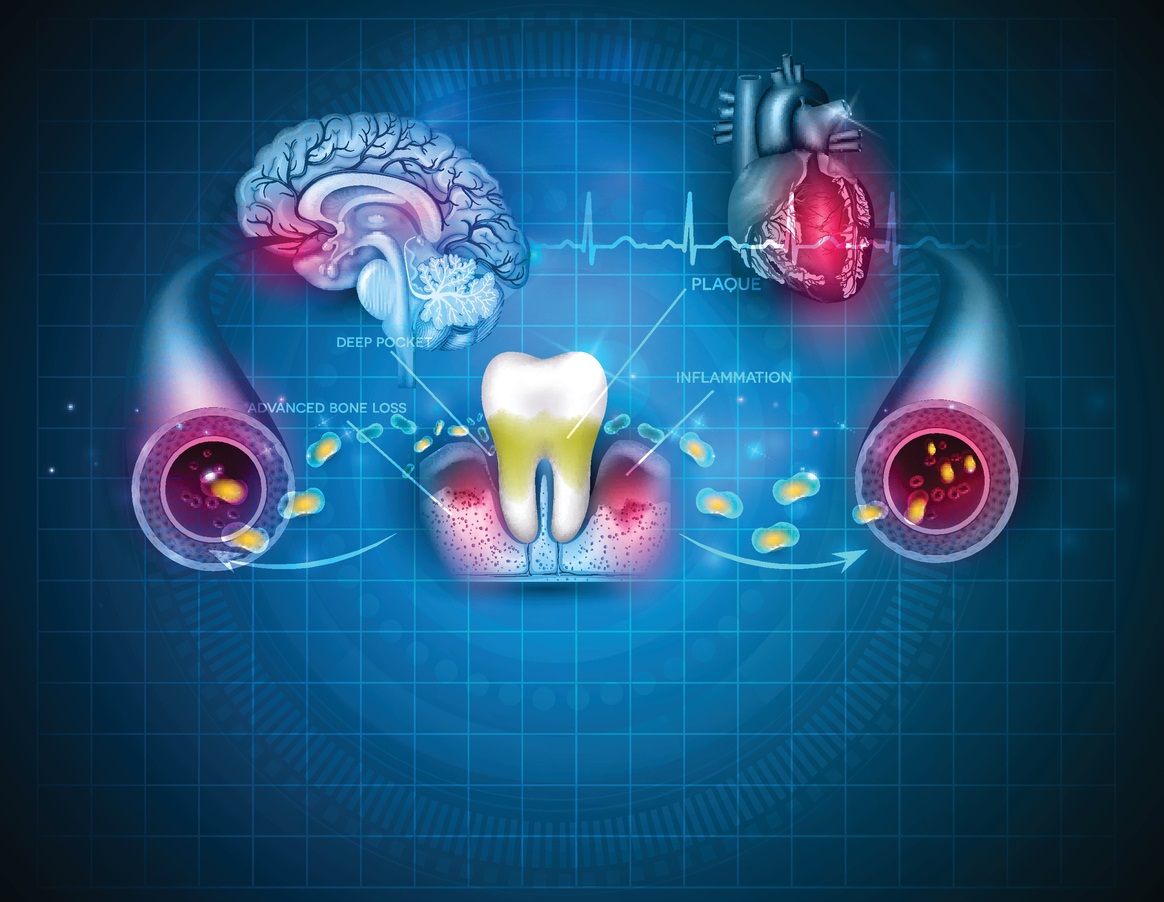
Brush For Your Brain
Going to the dentist may not be on everyone’s list of favorite things to do, but results of recent studies are providing new reasons to make dental checkups a priority.
A growing body of evidence links poor oral health, in particular gum disease, to a higher risk of Alzheimer’s disease and other dementias.
“Poor oral health, which includes teeth, gums, tongue, and inside the cheeks, can portend increased risk for future neurologic disease.” -Dr. Cameron Jeter, PhD, Neuroscientist at the Kansas College of Osteopathic Medicine
Mild gum disease (also known as gingivitis) is when plaque and bacteria build up on the teeth and cause infection. A more advanced disease known as periodontitis can involve chronic inflammation that damages both he gums and the bone that anchors the teeth.
A study from Japan, published in Neurology in September 2023, in regards to the link between oral health and brain health found that as you aged, it wasn’t enough to simply keep your teeth, the key was having a mouth free of periodontal disease.
Researchers at Yale University likewise found an association between various indicators of poor health and brain health measured on MRI scans from more than 40,000 adults. They reported that people who were genetically predisposed to poor oral health were at higher risk for a decline in brain health.
Another theory suggests that poor oral health may allow bacteria from the mouth to reach the bloodstream. Once there, bacteria and their toxins could damage the blood-brain barrier, leading to increased inflammation.
Scientists agree that more research is needed to prove a cause-and-effect connection between oral health and brain health.
The key is to take care of your teeth now.
Keep your mouth healthy with these tips:
- Brush Properly. You should brush twice a day – in the morning and before going to bed at night. Use a soft bristle toothbrush and avoid a back-and-forth motion, which can be hard on tooth enamel.
- Floss Regularly. Floss at least once a day or every time you brush. Some people find it easier to use a soft gum pick instead of floss to clean between their teeth.
- Consider Mouthwash. Mouthwash makes the mouth feel and smell fresh. Your dentist may suggest a specific type of mouthwash depending on your oral profile.
- Ask About Fluoride. Many public water systems are fluoridated to help prevent cavities. Your dentist may recommend brushing or drinking with a product that contains fluoride as an extra measure.
- Eat Crunchy Foods. The chewing motion involved in eating crisp produce such as raw carrots and apples is important for oral health, and research suggests it also may help maintain cognitive function.
- Limit Sweets. Sugar can promote cavities. Don’t suck on hard candy or mints. If you need cough drops, try sugar-free brands.
- Drink Plenty of Water. Reduce your consumption of sugary and acidic drinks (such as orange juice and coffee), which can erode enamel, in favor of water.
- Avoid Tobacco. People who smoke have an increased risk of tooth decay, gum problems, and losing teeth, according to the Centers for Disease Control and Prevention. If you smoke, ask your doctor or neurologist about programs that help people quit.
- Schedule Routine Checkups. Visit the dentist at least twice a year to be examined for cavities and gum disease. Visit more often if you tend to build up plaque or have a history of gum problems.
- Keep Your Dentist Informed. Tell your dentist if you are on new medications or have a new medical diagnosis. Report problems such as dry mouth or swallowing difficulties.
- Address Problems. If a tooth breaks, get it fixed or replaced as quickly as possible. If you wear dentures, make sure they fit properly.
brainandlife.org
Leave a reply →